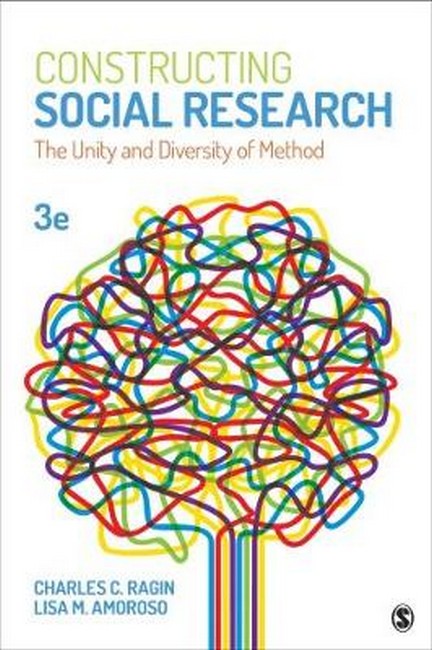Charles C. Ragin spent most of his youth in Texas and the southeastern United States. He attended the University of Texas at Austin as an undergraduate and received his BA degree in 1972 at the age of 19. That same year he began graduate work in sociology at the University of North Carolina at Chapel Hill and received his PhD in 1975. From 1975 until 2001, he lived in the Midwest, teaching first at Indiana University and then at Northwestern University. He headed west in 2001, where he spent just over a decade at University of Arizona-Tucson. In 2012, he joined the faculty at the University of California-Irvine, where he is currently the Chancellor's Professor of Sociology. He is best known for developing a methodological alternative to conventional research methods, using formal set-theoretic techniques for comparative research. His many publications address broad issues in politics and society, with topics ranging from the causes of ethnic political mobilization to the shaping of the welfare state in advanced capitalist countries. He has written several books including Intersectional Inequality: Race, Class, Test Scores and Poverty (with Peer Fiss, 2017). Redesigning Social Inquiry: Fuzzy Sets and Beyond (2008) Fuzzy-Set Social Science (2000). His book The Comparative Method: Moving Beyond Qualitative and Quantitative Strategies (1987) won the 1989 Stein Rokkan Prize of the International Social Science Council of UNESCO. In 2014 he received the Paul F. Lazarsfeld Award of the American Sociological Association. He is married to Mary Driscoll, and they have two sons, Andrew and Daniel. Lisa M. Amoroso spent her childhood in Pittsburgh and the suburbs of Chicago. She attended Northwestern University for her BA in economics and mathematical methods in the social sciences. After working in software development and management systems, she returned to Northwestern and the Kellogg School of Management, where she completed her PhD in a joint program in sociology and organization behavior in 2003. Since leading her first seminar at Northwestern in 1997, she has been teaching in the Midwest-at Northwestern, Beloit College, Roosevelt University, and currently Dominican University in River Forest, Illinois. Research methods and quantitative analysis are among her favorite courses to teach. In 2010, she joined Dominican's Brennan School of Business where she is a Professor of Management. She received Excellence in Teaching awards at Roosevelt in 2007 and at the Brennan School of Business in 2016. Although her primary focus is teaching, she publishes research on diversity education, social identity, status hierarchies, and student learning. She has published in variety of journals including Psychological Inquiry and Journal of Management Education. She is married to Phil Tracy, and they have two children, Nate and Carmen.
Request Academic Copy
Please copy the ISBN for submitting review copy form
Description
Preface Acknowledgments PART I: ELEMENTS OF SOCIAL RESEARCH CHAPTER 1: What Is (and Is Not) Social Research? Introduction Some Conventional Views of Social Research Social Research and Other Ways of Representing Social Life How Social Research Differs Conclusion CHAPTER 2: The Goals of Social Research Introduction Seven Main Goals The Link Between Goals and Strategies The Social Nature of Social Research CHAPTER 3: The Process of Social Research: Ideas and Evidence Introduction The Interpretive Model of Social Research Processes and Strategies of Social Research The Challenge of Social Research CHAPTER 4: The Ethics of Social Research Introduction Ethical Dilemmas and Failures The Troubled History of Ethical Research The Current Ethical Standards and Institutional Oversight Ethical and Professional Dilemmas Facing Social Researchers The Problem of Representation Conclusion PART II: STRATEGIES OF SOCIAL RESEARCH CHAPTER 5: Using Qualitative Methods to Study Commonalities Introduction The Goals of Qualitative Research The Process of Qualitative Research Using Qualitative Methods The Study of a Single Case Conclusion CHAPTER 6: Using Comparative Methods to Study Diversity Introduction Contrasts With Other Research Strategies The Goals of Comparative Research The Process of Comparative Research Using Comparative Methods Conclusion CHAPTER 7: Using Quantitative Methods to Study Covariation Introduction The Goals of Quantitative Research Contrasts With Other Research Strategies The Process of Quantitative Research Using Quantitative Methods Conclusion Afterword: The Promise of Social Research With Mary Driscoll Appendix: Computing Correlation Coefficients References Glossary/Index About the Authors

